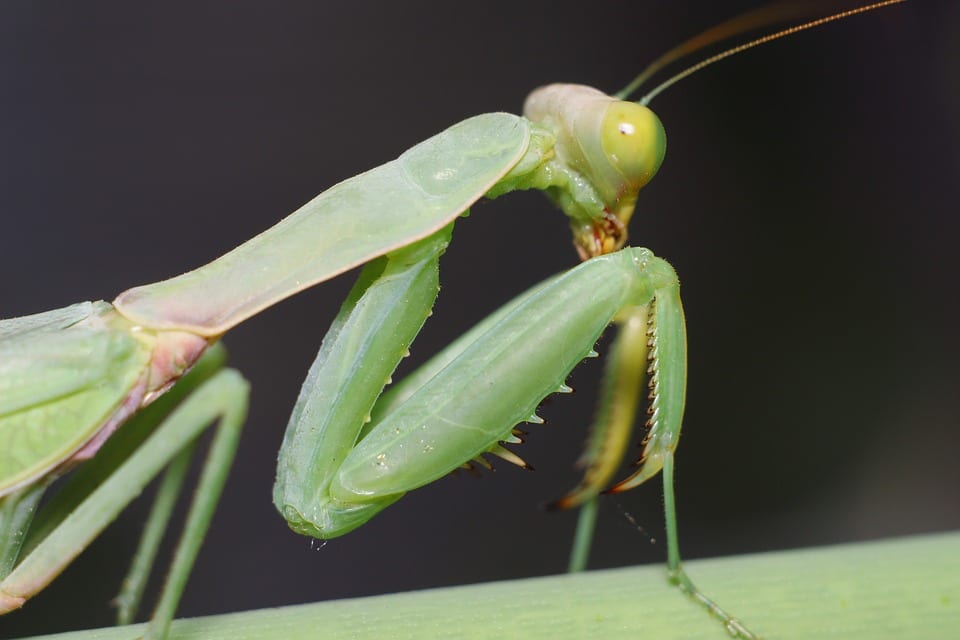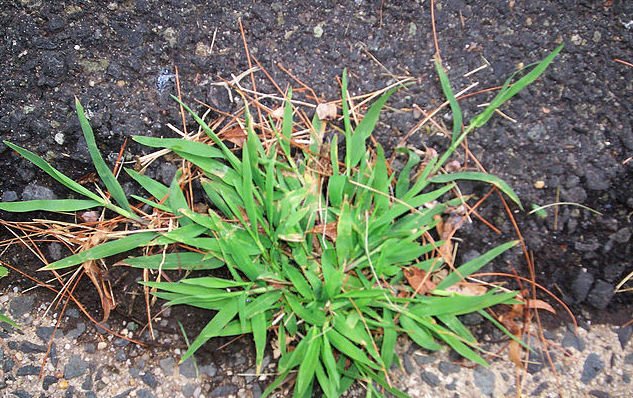You might be surprised to learn that not all bugs are bad for your garden. In fact, several beneficial insects can help keep pesky pests at bay and even enhance the overall health and well-being of your plants. Instead of reaching for chemical pesticides, why not let nature take its course and welcome these helpful critters into your outdoor space?
In this article, we’ll introduce you to seven amazing bugs that you’ll want to have in your garden. From ladybugs to lacewings, these tiny heroes will work hard to protect your precious plants from destructive pests. So sit back, relax, and get ready to discover how these beneficial bugs can make a world of difference in your garden’s success.
Why Use Bugs?
Bugs can be creepy and crawly, but they are also useful. To have a successful garden, you might want to consider using beneficial bugs. Beneficial bugs are a more natural alternative to using pesticides. Remember, pesticides will kill all the beneficial bugs as well.
Your garden can be organic if you use beneficial bugs instead of pesticides. Some research shows that bugs are growing a tolerance for pesticides. Using beneficial bugs might be more effective at getting rid of non-beneficial bugs. Beneficial bugs also save money.
Instead of buying pesticides, you can use beneficial bugs. Beneficial bugs can be caught from where you live so they are free! There are so many wonderful things about bugs. You may not like bugs, but it would help your garden to have them.
1. Ladybugs: The Aphid Eaters
Ladybugs are a gardener’s best friend when it comes to dealing with pesky aphids. These colorful beetles, also known as ladybird beetles or ladybeetles, are voracious predators of aphids and other soft-bodied insects that can wreak havoc on your plants. A single ladybug can consume up to 5,000 aphids in its lifetime!
Not only do they help keep the aphid population under control, but they also contribute to pollination as they move from plant to plant in search of prey.
Introducing ladybugs into your garden is an easy and natural way to protect your plants without resorting to harmful chemical pesticides. You can purchase these beneficial bugs from various online and local garden supply stores or simply attract them by planting a diverse range of flowering plants such as dill, fennel, cilantro, and yarrow.
These flowers provide nectar and pollen for adult ladybugs while offering habitat for their larvae. With the help of these tiny warriors in your garden, you’ll soon notice a decline in the number of aphids feasting on your precious plants.
2. Lacewings: Guardians Of Plant Health
Lacewings, often referred to as guardians of plant health, are a fantastic addition to any garden ecosystem. These delicate insects have a voracious appetite for pests such as aphids, mites, and other soft-bodied insects that can wreak havoc on your plants. Adult lacewings are graceful flyers with large, translucent wings and bright green or brown bodies. However, it is their larvae that are the true stars in providing natural pest control.
Introducing lacewings into your garden is a simple and effective way to keep harmful pests at bay without resorting to chemical pesticides. The larvae, known as “aphid lions,” can consume up to 200 aphids per week, significantly reducing the damage these pests can cause.
Additionally, lacewings are not picky eaters; they will also devour insect eggs, thrips, and small caterpillars. Encourage these beneficial insects in your garden by planting pollen and nectar-producing plants like dill or coriander or purchasing lacewing eggs from a reputable supplier.
3. Ground Beetles: Soil Protectors
As we’ve seen, lacewings play a crucial role in maintaining the health of our plants by keeping pesky pests at bay. However, they’re not alone in their mission to protect your garden. Another group of beneficial insects known as ground beetles also contribute significantly to the well-being of your green space.
Ground beetles are true soil protectors, as they live and hunt within the top layer of soil, preying on various pests such as slugs, snails, cutworms, and other insects that can wreak havoc on your garden. They are nocturnal creatures and come out at night to feast on these destructive pests. A single ground beetle can consume several dozen caterpillars in one week!
By having a healthy population of ground beetles in your garden, you’re ensuring that these harmful pests are kept under control without needing harsh chemical pesticides. So next time you spot a ground beetle scurrying around your soil, remember that it’s working hard to keep your garden safe and thriving!
4. Praying Mantises: Natural Pest Control
The praying mantis is a fascinating insect that can provide numerous benefits to your garden. These insects are highly skilled predators, preying on a wide variety of pests such as aphids, caterpillars, and even mosquitoes.
They have unique physical adaptations that make them formidable hunters, including their lightning-fast reflexes and ability to rotate their heads nearly 180 degrees. By introducing praying mantises into your garden, you can naturally reduce the population of harmful pests without resorting to chemical pesticides.
Not only do praying mantises help keep your garden free of unwanted insects, but they’re also fascinating creatures to observe. Their peculiar appearance and interesting behaviors can add an element of wonder to your outdoor space. Just be aware that they may occasionally prey on beneficial insects as well; however, this is often outweighed by the advantages they offer in terms of pest control.
So if you’re looking for a natural way to defend your plants and create a more balanced ecosystem in your garden, consider welcoming praying mantises into the mix.
5. Honeybees: Essential Pollinators
As we’ve discussed, praying mantises are incredibly helpful in controlling pest populations within your garden. Another beneficial bug that plays a vital role in maintaining a healthy and thriving garden ecosystem is the honeybee.
Honeybees are essential pollinators for many plants, including fruits, vegetables, and flowers. They collect nectar from flowers and spread pollen as they fly from one blossom to another. This transfer of pollen allows plants to reproduce and grow the nutritious, delicious produce we enjoy.
By attracting honeybees to your garden, you’re not only supporting their dwindling populations but also ensuring the success and growth of your plants. So don’t forget these hardworking insects when planning your garden – they truly are nature’s little helpers!
6. Parasitic Wasps: Targeting Garden Pests
Parasitic wasps are another beneficial insect for your garden that you may want to consider. These tiny, non-stinging insects play a crucial role in controlling various types of pests that would otherwise wreak havoc on your plants. There are thousands of species of parasitic wasps, and each one targets specific pests such as aphids, caterpillars, and beetle larvae. By releasing these helpful insects into your garden, you’ll be providing a natural and effective form of pest control.
One remarkable aspect of parasitic wasps is their unique method of controlling pests. The female wasp lays her eggs inside the body of the host insect, where the eggs develop and eventually kill the host once they hatch. This not only eliminates the existing pests but also prevents them from reproducing and causing further damage to your garden.
By incorporating parasitic wasps into your gardening routine, you can maintain a healthy balance between beneficial insects and harmful pests without resorting to chemicals or pesticides.
7. Earthworms: Nature’s Soil Conditioners
As we’ve seen, parasitic wasps can be an effective and natural way to control various garden pests. However, they’re not the only beneficial bugs that can improve your garden’s health. Another essential critter to consider is earthworms, known as nature’s soil conditioners.
Earthworms play a crucial role in maintaining healthy soil by breaking down organic matter and releasing vital nutrients for plants. As they move through the soil, they create tunnels that help aerate it, allowing water and oxygen to reach plant roots more efficiently.
This process improves soil structure and drainage, promoting plant growth and reducing the risk of root diseases. By encouraging a thriving earthworm population in your garden, you’ll be providing a solid foundation for your plants to grow strong and healthy.
Some Frequently Asked Questions
How Can I Attract These Beneficial Bugs To My Garden And Maintain A Healthy Ecosystem For Them To Thrive In?
To attract beneficial bugs to your garden and maintain a healthy ecosystem for them to thrive in, it’s essential to provide a diverse range of plants, including flowering varieties that offer nectar and pollen. Incorporate native plants that are adapted to your local conditions and avoid using pesticides or harmful chemicals that can negatively impact the bug population.
Providing shelter, such as leaf piles, rocks, or small logs, can create a safe habitat for these helpful insects. Ensuring a consistent water source like a shallow dish or birdbath will keep the bugs hydrated and encourage them to stay in your garden. By fostering an inviting environment for these beneficial bugs, you’ll promote a balanced ecosystem that supports both plant growth and natural pest control.
Are There Any Specific Plants Or Flowers That Are More Effective In Attracting These Beneficial Insects To My Garden?
Yes, some specific plants and flowers can effectively attract beneficial insects to your garden. Some popular choices include marigolds, sunflowers, dill, fennel, and yarrow. These plants not only add beauty to your garden but also provide food and shelter for helpful bugs like ladybugs, lacewings, and parasitic wasps.
By planting a diverse mix of these insect-friendly plants in your garden, you can create a supportive ecosystem that encourages the presence of these advantageous critters while also controlling harmful pests naturally.
How Can I Ensure That The Use Of Pesticides Or Other Chemicals In My Garden Does Not Harm These Helpful Bug Populations?
To ensure that the use of pesticides or other chemicals in your garden does not harm helpful bug populations, it’s essential to practice integrated pest management (IPM). IPM involves using a combination of strategies, including choosing the least toxic pesticides, applying them only when necessary, and targeting specific pests instead of indiscriminately spraying.
You can also opt for organic or natural alternatives like neem oil, insecticidal soap, or diatomaceous earth. Additionally, consider planting a diverse range of plants and flowers to provide habitats and food sources for beneficial insects. By taking these steps, you’ll be able to protect both your garden and the valuable bugs that help maintain its health.
What Are Some Signs That These Beneficial Insects Are Successfully Controlling Pests In My Garden Or That Their Populations Are Increasing?
Some signs that beneficial insects are successfully controlling pests in your garden or that their populations are increasing include a noticeable decrease in pest damage to plants, fewer sightings of harmful insects, and an increase in the presence of natural predators such as ladybugs or lacewings.
You may observe these helpful bugs laying eggs on leaves or feeding on pests, which indicates a thriving population. By paying close attention to these indicators, you can gauge the effectiveness of beneficial insects in maintaining a healthy garden ecosystem.
Are There Any Potential Downsides Or Risks To Encouraging These Beneficial Bugs In My Garden, Such As Harm To Non-Target Species Or Disruption Of The Natural Balance?
While encouraging beneficial bugs in your garden can help control pests and maintain a healthy ecosystem, there are some potential downsides or risks to consider. Introducing non-native species may disrupt the natural balance and cause harm to non-target organisms. Additionally, some beneficial insects might prey on other helpful species, leading to an imbalance in the garden’s predator-prey dynamics. It is essential to research the specific insects you plan to introduce and ensure that they will not have negative impacts on your local environment or other beneficial creatures.
Conclusion
It’s essential to create a welcoming environment for these beneficial bugs in our gardens. By planting specific flowers and plants that attract them and being mindful of our pesticide use, we can foster a healthy ecosystem that keeps pests at bay.
Remember to keep an eye out for signs of their success in controlling pests and increasing populations. While there may be some risks involved, the benefits of having these helpful insects far outweigh any potential downsides.









